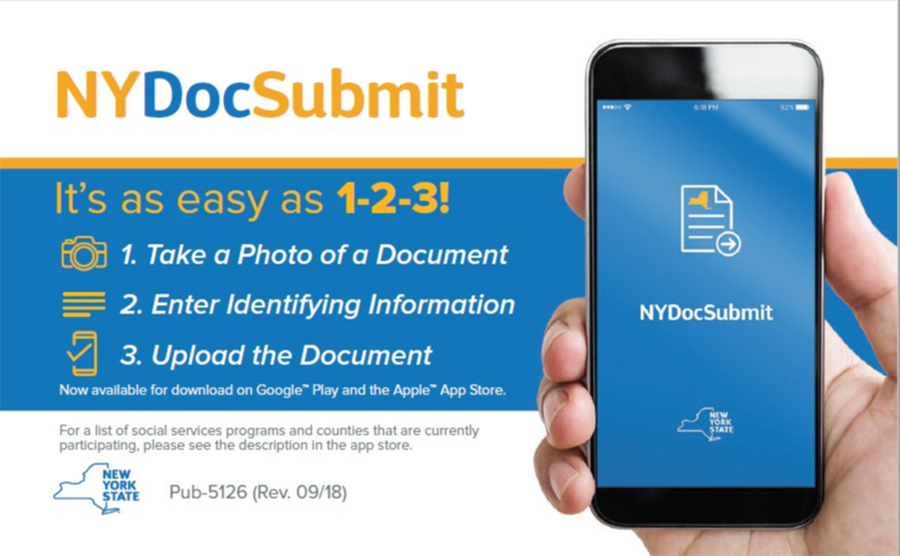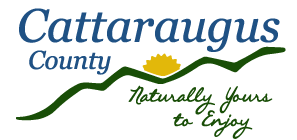Temporary help for needy men, women and children. If you are unable to work, can’t find a job, or your job does not pay enough, TA may be able to help you pay for your expenses. If you are in need of assistance or have questions, please call (716) 373-8065.
How to Apply for Temporary Assistance
Applying online is an option. Applicants may use the Electronic LDSS-2921 (E-2921) Application for Certain Benefits and Services to apply for Temporary Assistance. This may be accessed through https://mybenefits.ny.gov/.
Paper applications are accepted by fax (716-701-3721), mail, or may be submitted in person at the local district office located at 1 Leo Moss Dr., Olean, NY 14760 Monday-Friday 8:30am-4pm.
Online, fax, mail-in, or in-person application submission requires an eligibility interview within 7 days of the submission date. There is no appointment needed. Interviews, for those who aren’t facing an immediate need, can be done Monday-Friday 8:30am-3pm. In addition to telephone interviews, face-to-face interviews are available, as well.
Online Documentation Submission

Electronic document submission is now available for Cattaraugus County applicants and recipients using NYDocSubmit. NYDocSubmit is a mobile application that allows certain applicants and recipients to take pictures of their documents and submit them to their local district office using their Apple iOS or Android device. There is no need for the individual to take time off from work, stand in line or travel to the district office to drop off documents.
Note: NYDocSubmit is not monitored for emergencies and is not to be used to submit an application or to submit a periodic report.
The link below addresses some frequently asked questions about that process.
Questions/Problems with Mobile upload using NYDocSubmit FAQ
Family Assistance (FA)
This provides cash assistance to eligible needy families. The requirements of the program are:
- A minor child living with a parent (including families where both parents are in the household) or a caretaker relative.
- Eligible adults are limited to receiving benefits for a total of 60 months in their lifetime, including months of TANF-funded assistance granted in other states.
- Parents and other adult relatives determined to be able to work must comply with federal work requirements to receive FA benefits.
- Cooperate with state and local departments of social services in efforts to locate any absent parent and obtain support payments and other payments or property.
Non-Parent Caregivers (Grandparents, Other Relatives, Friends) Caring for Children
Non-parent caregivers, who are caring for children without a parent living in their home, may be eligible for Temporary Assistance. Temporary Assistance for children not living with a parent is often referred to as “non-parent caregiver” or “child-only” grants, and includes Medical Assistance (MA). If the non-parent caregiver wants assistance only for the children, the non-parent caregiver’s income is not used to determine eligibility and there are no Temporary Assistance work requirements for the non-parent caregiver. Non-parent caregivers may apply for temporary assistance at their local social services office.
In addition to financial assistance, non-parent caregivers (also called kinship caregivers) often have a need for information and assistance related to food stamps, the Home Energy Assistance Program (HEAP), custody, guardianship, foster care, adoption, schooling, school enrollment, and other forms of assistance such as child care, social security, respite, case management and service programs.
For information about services and assistance programs please visit the following websites:
- www.nysnavigator.org - The NYS Kinship Navigator’s website offers legal fact sheets, state and local kinship resources, and other information. In addition, the Navigator operates a toll free phone line at 1-877-454- 6463. Kinship Specialists are available from 10:00 am to 4:00 pm Monday through Friday. A message may be left during non-business hours and calls will be returned when business hours resume.
- http://otda.ny.gov/programs/ - The NYS Office of Temporary and Disability Assistance (OTDA).
- www.mybenefits.ny.gov - MyBenefits is an online tool to help you learn about eligibility for financial assistance and other benefit programs. A simple, 10-minute prescreening from any computer with Internet access at any time, determines whether you are likely to qualify for Food Stamps, HEAP, the Earned Income Tax Credit, child dependent care credits, school lunch and other programs.
- http://www.ocfs.state.ny.us/kinship/default.asp - The NYS Office of Children and Family Services (OCFS) provides contact information and links to the Kinship Caregiver Programs funded through OCFS, as well as a variety of resources for families and staff, including the Kinship Guardianship Assistance Program (KinGAP), a subsidy program available to kinship caregivers who are foster parents.
Cattaraugus County Department of Social Services and Office for the Aging are also resources for information on kinship care.
Safety Net Assistance (SNA)
Safety Net Assistance (SNA) provides cash assistance to eligible needy individuals and families who are not eligible for FA). SNA is for:
- Single adults
- Childless couples
- Children living apart from any adult relative
- Families of persons found to be abusing drugs or alcohol
- Families of persons refusing drug/alcohol screening, assessment or treatment
- Aliens who are eligible for temporary assistance, but who are not eligible for federal reimbursement
Recipients of SNA who are determined to be able to work must also comply with work requirements.
Generally, you can receive cash SNA for a maximum of two years in a lifetime. After that, if you are eligible for SNA, it is provided in non-cash form, such as a payment made directly to your landlord or voucher sent directly to your utility company. In addition, non-cash SNA is provided for:
- Families of persons found to be abusing drugs or alcohol
- Families of persons refusing drug/alcohol screening, assessment or treatment
- Families with an adult who has exceeded the 60-month lifetime time limit
Emergency Assistance
An emergency is an urgent need or situation that has to be taken care of right away. Some examples of an emergency are:
- You are homeless
- You have little or no food
- Your landlord has told you that you must move or has given you eviction papers
- You do not have fuel for heating in the cold weather period
- Your utilities are shut-off or are about to be shut-off, or you have a 72-hour disconnect notice
- You or someone in your family has been physically harmed, or threatened with violence by a partner, ex-partner or other household member
If you and/or your family are experiencing an emergency situation, you may be eligible for emergency assistance. Some examples of emergency assistance include, but are not limited to:
- Payment of shelter arrears
- Payment of utility arrears
- Payment of fuel and/or cost of fuel delivery
- Payment of Domestic Violence Shelter costs
- Payment of Temporary Housing (Hotel/Motel) costs
Payments may be authorized once you are determined to be eligible for one of the following emergency programs:
Emergency Assistance to Adults (EAA) provides assistance for individuals and couples who have been determined eligible or are receiving SSI (Supplemental Security Income) or State Supplementation Program (SSP) payments.
Emergency Assistance to Needy Families (EAF) - provides assistance to meet the emergency needs of pregnant women and families with at least one child under age 18, or under age 19 and regularly attending full time secondary school.
Emergency Safety Net Assistance (ESNA) - provides emergency assistance to single adults and childless couples.
Note: Aliens who do not have documents that permit them to reside legally in the US are eligible only for certain kinds of emergency benefits.
You DO NOT have to be eligible for ongoing Temporary Assistance to receive Emergency Assistance.
Adverse Childhood Experiences
Adverse childhood experiences (also known as ACEs) are stressful or traumatic events, such as neglect and/or violence. ACEs are strongly related to brain development and a wide range of health problems throughout a person’s lifetime.
ACEs may include but are not limited to physical or sexual abuse, domestic violence, living in poverty, parental mental illness, discrimination, substance use disorder or incarceration.
More information is available at https://ocfs.ny.gov/programs/cwcs/aces.php.
